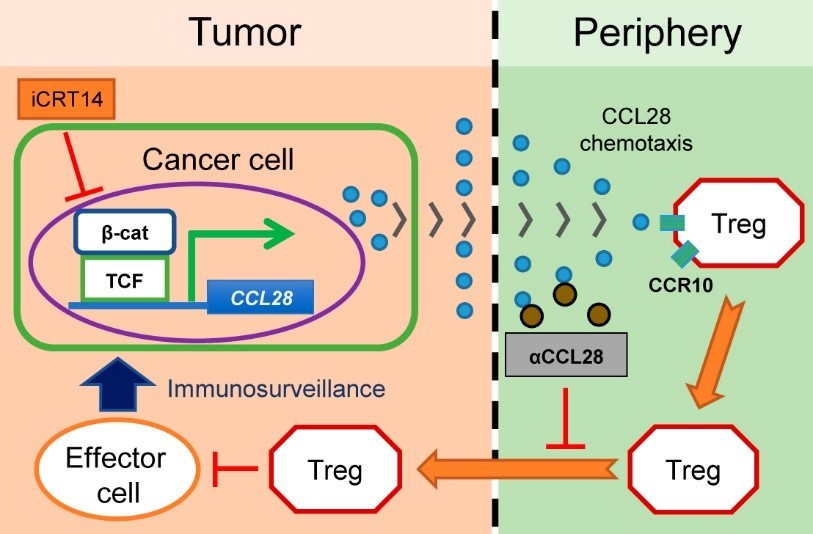


Wei-Qiang Gao and Bin Ma’s team from Shanghai Jiaotong University: A New Idea of Immunotherapy for Gastric Cancer
March 23, 2020
Wei-Qiang Gao, Bin Ma’s team from the school of Biomedical Engineering, Shanghai Jiaotong University published research findings online: Blockade of β-catenin-induced CCL 28 suppresses gastric cancer progression via inhibiting Treg cell infiltration in Cancer Research, a well-known international journal by American Association for cancer research (AACR) on March 10, 2020. The first author of this research is a doctoral student Lu Ji, with Professor Gao and Associate Researcher Ma as corresponding authors.

Gastric cancer has super high occurrence and mortality rate in East Asian country including China. 40% of world’s new cases are in China and the death rate is 4-8 times higher than that of European developed countries. Helicobacter pylori infection, diet, smoking and environmental factors may increase the risk of gastric cancer.
In recent years, research in tumor immunity has rapidly advanced the immunotherapy development. Wnt/β-catenin is one of the most common carcinogenic pathways in gastric cancer, which directly promotes tumor cell proliferation and slows down apoptosis. However, it remains unclear how it regulates the immune microenvironment of gastric cancer. Researchers have found that, the abnormal activation of β-catenin leads to chemokine CCL28 expression and increases Treg infiltration, which reveals immunosuppression of β-catenin pathway in gastric cancer.
This study extends previous research on Wnt/β-catenin carcinogenic effects, which in the past, were mainly depended on regulation of gastric cancer cells proliferation, survival and differentiation. It verified the significant immunomodulatory role β-catenin signaling pathway played in tumor progression. More importantly, targeting chemokine CCL28 to block the T cell infiltration provides a new idea for gastric cancer immunotherapy.

The research was supported by the National Key R&D Program of the Ministry of Science and Technology, National Natural Science Foundation of China, Shanghai Young Oriental Scholars and K.C. WONG Foundation.
Full text link:
https://cancerres.aacrjournals.org/content/early/2020/03/10/0008-5472.CAN-19-3074